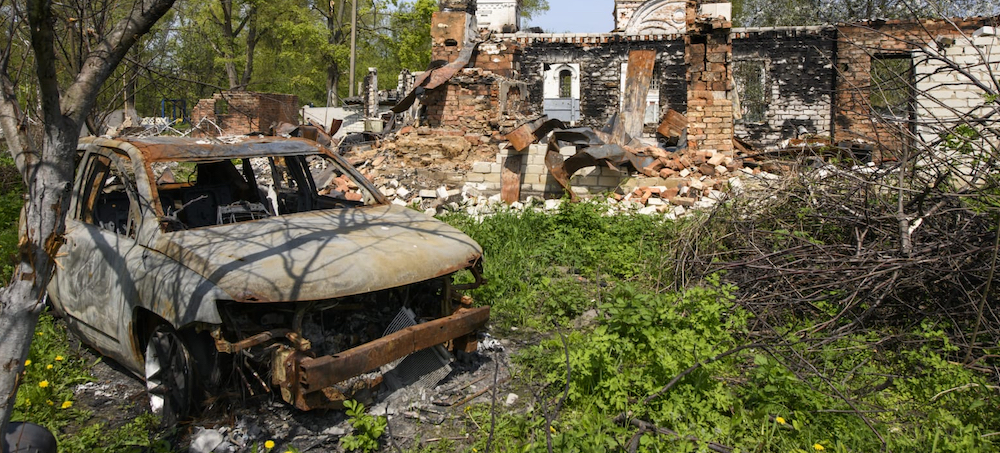Live on the homepage now!
Reader Supported News
That’s not just what I believe. That’s what the American people know to be true. According to a March 2022 survey by Gallup and West Health, an estimated 93 percent of American adults feel what they pay for health care is not worth the cost. That poll also showed that 64 percent of Americans are dissatisfied with the availability of affordable health care.
Today, according to the Center for Medicare and Medicaid Services (CMS), we now spend an unbelievable $12,530 per person for health care. Yes. $12,530 for every man, woman and child in this country.
Despite this huge expenditure, 30 million Americans have no insurance at all and 112 million struggle to pay for the health care they need.
Further, we pay, by far, the highest prices in the world for prescription drugs with nearly 1 out of 4 patients unable to fill the prescriptions their doctors write.
Despite spending more than twice as much on healthcare as the average developed country our health outcomes are worse than most. For example, our life expectancy is about 4.5 years lower than Germany’s and we have the highest infant mortality rate of almost any major country on earth.
While the current system is not working for ordinary Americans, it is working VERY well for insurance and drug companies and their CEOs.
Last year, the six largest health insurance companies in America made over $60 billion in profits, led by the UnitedHealth Group, which made $24 billion in 2021. The CEOs of 178 major health care companies collectively made $3.2 billion in total compensation in 2020 – up 31% from 2019.
According to Axios, in 2020, the CEO of Cigna, David Cordani, took home $79 million; the CEO of Centene, Michael Neidorff, made $59 million; and the CEO of UnitedHealth Group, Dave Wichmann, received $42 million in total compensation.
In terms of the pharmaceutical industry, last year Pfizer, Johnson & Johnson and AbbVie – three giant pharmaceutical companies - increased their profits by over 90 percent to $54 billion and the CEOs of just 8 prescription drug companies made $350 million in total compensation in 2020.
The Medicare for All Act of 2022 which I have just introduced with 15 co-sponsors would provide comprehensive health care coverage to every man, woman and child in our country – without out-of-pocket expenses and with full freedom of choice regarding health care providers. No more insurance premiums, deductibles or co-payments. And comprehensive means the coverage of dental care, vision, hearing aids, prescription drugs and home and community based care.
The transition to the Medicare-for-all program would take place over four years. In the first year, benefits to older people would be expanded to include dental care, vision coverage and hearing aids, and the eligibility age for Medicare would be lowered to 55. All children under the age of 18 would also be covered.
In the second year, the eligibility age would be lowered to 45 and in the third year to 35. By the fourth year, every man, woman and child in the country would be covered by Medicare for All.
Would a Medicare-for-all health care system be expensive? Yes. But, while providing comprehensive health care for all, it would be significantly LESS costly than our current dysfunctional system because it would eliminate an enormous amount of the bureaucracy, profiteering, administrative costs and misplaced priorities inherent in our current for-profit system.
Under Medicare for All there would no longer be armies of people billing us, telling us what is covered and what is not covered and hounding us to pay our hospital bills. This not only saves substantial sums of money but will make life a lot easier for the American people who no longer have to fight their way through the nightmare of insurance company bureaucracy.
In fact, the Congressional Budget Office estimated that Medicare for All would save Americans $650 billion a year.
Now, trust me. I know the 30-second ads coming from the insurance and drug companies will tell you that if Medicare for All becomes law, your taxes will go up. And they are correct. But what they won’t tell you is that under Medicare for All, you will no longer be paying premiums, deductibles and co-payments to private health insurance companies.
And what they certainly will not tell you is that Medicare for All will save the average family thousands of dollars a year. In fact, a study by RAND found that moving to a Medicare-for-all system in New York would save a family with an income of less than $185,000 about $3,000 a year, on average.
Now, if Medicare for All was so great, you might ask, why hasn’t it been enacted by now? Why hasn’t the United States joined every major country on earth in guaranteeing health care for all?
Well, the answer is pretty simple. Follow the money. Since 1998, in our corrupt political system, the private health care sector has spent more than $10.6 billion on lobbying and over the last 30 years it has spent more than $1.7 billion on campaign contributions to maintain the status quo. And, by the way, they are "bi-partisan." In fact, they own many of the politicians in both the Democratic and Republican parties.
Guaranteeing health care as a right is important to the American people not just from a moral and financial perspective; it also happens to be what the majority of the American people want. In 2020, in a Hill/Harris poll 69 percent of the American people supported providing Medicare to every American.
Now is the time for Congress to stand with the American people and take on the powerful special interests that dominate health care in the United States. Now is the time to improve and extend Medicare to everyone.
Here is the bottom line: If every major country on earth can guarantee health care to all and achieve better health outcomes, while spending substantially less per capita than we do, there is no reason, other than greed, that the United States of America cannot do the same.
 Agricultural products were Ukraine's primary source of export revenue, and accounted for nearly 10% of the country's GDP. (photo: Fadel Dawood/Getty Images)
Agricultural products were Ukraine's primary source of export revenue, and accounted for nearly 10% of the country's GDP. (photo: Fadel Dawood/Getty Images)
 The boy's story echoes that of many Ukrainians who managed to flee the arrival of Russian troops in their villages. (photo: Getty Images)
The boy's story echoes that of many Ukrainians who managed to flee the arrival of Russian troops in their villages. (photo: Getty Images)
Andrei Bliznyuk had been trying to flee with his parents when he says Russian troops set their sights on them.
The boy, identified as Andrei Bliznyuk, spoke to the Ukrainian news outlet TSN about the family’s doomed escape from the village of Sofiivka in early March.
He said they were confronted by a column of Russian military vehicles as they tried to make their way out, and one of the armored personnel carriers deliberately crushed their vehicle.
“Dad died first. Mom was still alive, but wounded,” the boy told the news outlet as he revisited the wreckage of the family’s car for the first time.
Russian troops yanked him out of the vehicle and tossed him on the road, he said, then they began firing at the family’s car as his parents were still inside, deliberately aiming for and striking the gas tank.
He focused on all the Russian military vehicles while the car went up in flames with his mother still alive inside, he said.
“I counted about 120,” he said. “At first there were tanks, armored personnel carriers, a lot of Grad [rocket launchers].”
He managed to get to safety after seeing people he knew from the village, who phoned his grandparents. According to them, he has barely been able to cry yet, TSN reported.
His mother, Oksana, was 46 and his father, Mikhail, was 52. Another relative who was in the vehicle, Sergei, was 33.
The boy’s story echoes that of many Ukrainians who managed to flee the arrival of Russian troops in their villages but said they witnessed Putin’s soldiers indiscriminately slaughtering civilians as they tried to evacuate. Ukrainian authorities have said they are compiling as much information as possible on all such accounts in order to bring war crimes charges against Russia.
 Pro-choice activists protest outside the Supreme Court building. (photo: Jonathan Ernst/Reuters)
Pro-choice activists protest outside the Supreme Court building. (photo: Jonathan Ernst/Reuters)
“The fact is that if the U.S. Supreme Court confirms its draft decision, women will die,” the Lancet said in its editorial. “The Justices who vote to strike down Roe will not succeed in ending abortion, they will only succeed in ending safe abortion. Alito and his supporters will have women's blood on their hands.”
The 199-year-old journal argues that Alito’s “shocking, inhuman, and irrational” draft opinion “utterly fails to consider the health of women today who seek abortion.”
“Unintended pregnancy and abortion are universal phenomena. Worldwide, around 120 million unintended pregnancies occur annually,” the editorial stated. “Of these, three-fifths end in abortion. And of these, some 55% are estimated to be safe — that is, completed using a medically recommended method and performed by a trained provider. This leaves 33 million women undergoing unsafe abortions, their lives put at risk because laws restrict access to safe abortion services.”
In the United States, the Lancet notes, Black women have an unintended pregnancy rate double that of non-Hispanic white women and a maternal mortality rate almost three times higher than for white women.
“These sharp racial and class disparities need urgent solutions, not more legal barriers,” the editorial said.
“If the Court denies women the right to safe abortion,” the Lancet concluded, “it will be a judicial endorsement of state control over women — a breathtaking setback for the health and rights of women, one that will have global reverberations.”
The publication of the editorial comes amid nationwide protests by abortion rights advocates over the initial draft majority opinion, which was published by Politico earlier this month. The report suggested that the Supreme Court is poised to overturn Roe v. Wade, the 1973 ruling that legalized abortion nationwide.
Polls show that most Americans would object to such a move.
According to a new Yahoo News/YouGov poll, just 31% of U.S. adults say Roe should be overturned. In contrast, nearly twice as many Americans see abortion as “a constitutional right that women in all states should have some access to” (56%) and say the procedure should be legal in all or most cases (55%).
Hundreds of thousands of advocates for reproductive rights are expected to take part in demonstrations in dozens of U.S. cities on Saturday.
 Firefighters are exposed to higher than average levels of PFAS as it is still used in flame retardants. (photo: Getty Images)
Firefighters are exposed to higher than average levels of PFAS as it is still used in flame retardants. (photo: Getty Images)
Microplastics are the subject of a lot of scrutiny. Wherever we look for them we find them. And yet, there are perhaps other less tangible pollutants that should be hitting the headlines, and which have been in our blood for decades.
Chemical pollution has officially crossed "a planetary boundary", threatening the Earth's systems just as climate change and habitat loss are known to do. A recent study by scientists from Sweden, the UK, Canada, Denmark and Switzerland highlights the urgent need to turn off the tap at source. Many toxic chemicals, known as persistent organic pollutants, or POPs, don't easily degrade. They can linger in the environment and inside us – mostly in our blood and fatty tissues – for many years.
I was curious about whether any of these chemicals were in my own blood while researching for my book, Go Toxic Free: Easy and Sustainable Ways to Reduce Chemical Pollution, I contacted a professor of environmental chemistry in Norway called Bert van Bavel. His research has focused on POPs that persist in bodies for more than 20, 30, sometimes 50 years and he analyses how high exposure in populations correlates to cancers, heart disease and conditions such as diabetes.
Bert van Bavel developed a blood test protocol for Safe Planet, a global awareness campaign established by the UN Environmental Programme that could be used to monitor the levels of these toxic chemicals in the global population.
Safe Planet highlights the harm caused by the production, use and disposal of hazardous chemicals such as flame retardants and pesticides, many of which have been banned. He designed a test to measure 'body burden' – that's the amount of these persistent synthetic chemical pollutants that accumulate in the body. Since 2010, this test has been carried out on more than 100,000 people around the world, across Europe, North and South America, Africa and Southern Asia.
Now, it was my turn. I booked an appointment at my local GP surgery and had my blood taken. I carefully packaged up the test tubes and couriered them to a specialist lab in Norway which spent six weeks analysing my blood for 100 or so POPs in line with this body burden test protocol.
When the results finally arrived via email, I felt quite apprehensive. The eight-page-long document detailed concentrations of so many chemicals, each with tricky-to-pronounce names. I needed help to decipher what this all meant and to work out if I should be worried about any, or if, perhaps, these levels were low enough to be insignificant.
So I called van Bavel who explained that most of the chemicals on the list were to be expected as part of the "toxic cocktail" we all have in our bodies.
Many, but not all, of these POPs are regulated by the UN's Stockholm Convention, a global treaty that bans or restricts the use of toxic synthetic chemicals such as certain pesticides, flame retardants and PCBs or polychlorinated biphenyls that were used as cooling fluids in machinery and in electrical goods in the UK until 1981.
"In your blood sample, we looked at the old traditional POPs which have been regulated and off the market so they haven't been used for many years," he explained. My results showed traces of DDE, a metabolite of the pesticide DDT that was used until the 1970s as well as low levels of PCBs. "It's a little bit frightening that if you get these chemicals in society, it's very difficult to get rid of them." Despite bans, these chemicals still persist, as many don't degrade easily.
He was surprised to find relatively high levels of a chemical known as oxychlordane which is normally found at lower levels than DDT and more often in the US and Asia than in the UK. The pesticide chlordane was banned in the UK in 1981, just a year after I was born. Once in the body, it's metabolised into oxychlordane which was found in my blood at only 5% of the levels present in the population during the 1980s. But the 'half life' of this chemical – that's the time it takes for it to halve in concentration in my blood – is about 30 years. So not only was it probably passed to me via the womb, but I will have inadvertently passed this toxic legacy on to my own two children.
The impacts of some of the most hazardous chemicals last generations and chlordane is still used in some developing countries to this day. Chlordane is toxic by design – intended to kill insects, it also harms earthworms, fish and birds. In humans, it can disrupt liver function, brain development and the immune system plus it is a possible human carcinogen. Van Bavel wasn't alarmed by the current concentrations of oxychlordane still in my blood but he did emphasise the importance of banning toxic chemicals before they become globally prevalent and then accumulate in the human population.
But the chemicals that concerned van Bavel the most were actually from a newer class, known as PFAS or polyfluoroalkyl substances. Thousands of different PFAS chemicals are used in everyday products to repel dirt and water – waterproof clothing, stain-resistant textiles, non-stick cookware all tend to be made with PFAS, otherwise known as "forever chemicals" because they are so persistent.
Should I be worried?
"Your levels [of PFAS] are not that high but they are a reasonable concern. We found ones called PFOS (perfluorooctanesulfonic acid), PFNA (perfluorononanoate), and lower levels of PFOA (perfluorooctanoate) the one we normally find in blood samples. The test found the major ones at 'a reasonable level', not a worrying level, but the regulation is lagging behind," commented van Bavel. He described my body burden as fairly average.
"We're all exposed to these types of chemicals. They accumulate in our body but they shouldn't be there. Your levels are acceptable from a human health perspective but if we didn't have any measures in place, levels would rise and our population would see different toxicological effects. Of course, these chemicals need to be regulated and… the number of replacements is rising so we need proper measures in place [to govern them]."
This "regrettable substitution" or replacement of one banned chemical with another similar one is a worry, especially with new emerging chemical pollutants such as PFAS, as van Bavel explains: "We don't have time to wait for research on every single chemical so we need to take a precautionary approach."
In terms of my own body burden, there's not much I can do to reduce the levels of toxic chemicals in my blood, according to van Bavel. "The sad thing is that it's very difficult for us to do something about it – we should all be very eager to regulate these compounds because they're everywhere. It's very difficult as an [individual] to avoid these background levels that we see that definitely should not be in your body. That's why we should support legislation and UN conventions that remove these compounds."
Prevention is better than cure
Better legislation is something Anna Lennquist, a senior toxicologist at the environmental NGO ChemSec, campaigns for. Based in Sweden, ChemSec aims to reduce the use of hazardous chemicals by influencing policy makers and encouraging companies to phase these chemicals out and opt for safer alternatives.
"We can reduce exposure but not eliminate it," agrees Lennquist. According to ChemSec, a huge 62% of the total volume of chemicals used in the EU are hazardous to human health and the environment. "[That's] why regulations are so critical and should protect us. Normal people shouldn't need to be bothered by these things – but we're not there yet.
"We can't be completely free from this, we have it with us from when we are born and it's so widespread in the environment – all of us have hundreds of [synthetic] chemicals in our blood these days," says Lennquist.
Toxic chemicals affect everything from our brain development to our hormone systems. Some can be carcinogenic. "Chemicals are working in many different ways in your body… some chemicals have delayed effects, for example ones that interact with our hormone systems. If you are exposed in the womb or during puberty, the effects can turn up many years later, even decades later, perhaps as breast cancers or different metabolic disorders."
So the outcomes depend not only on the type and level of exposure, but also whether that person is exposed during key stages of development. Lennquist explains that because we're never just exposed to one chemical at a time, this 'toxic cocktail' effect can be complex. Some chemicals might enhance the effect of others, some can work against each other.
"These low levels of this chemical mixture that affect hormone signalling and genetic effects are much more diffuse and difficult to link exactly – so that's why we need to do large-scale studies of populations over a long time to try to figure out what's the cause and what's the reason," says Lennquist, who remains optimistic.
New EU restrictions to ban around 12,000 substances have been proposed in what the European Environmental Bureau has called the world's "largest ever ban on toxic chemicals", but changes in regulation can be incredibly slow moving. "There is a long way to go but with the new EU chemical strategy and European Green Deal, we are hopeful that things can improve a lot. But even then, that would take a long time before that change is visible in your blood, I'm afraid."
Labels allow consumers to make a conscious choice without having to understand everything.
That's where we come in, as consumers, and more importantly, as citizens. "We can all use our voice by demanding greater transparency, clearer labelling and stricter regulation," adds Lennquist. "With pressure from consumers and everyone else within the supply chain, the chemical manufacturing industry could shift much more rapidly. And reducing toxic chemical pollution is not only good for business, but for every one of us and future generations."
Blood matters
As a regular blood donor myself, I wondered whether the NHS Blood Donation service tests for POPs like the ones in my body. As expected, they confirmed they screen for diseases such as hepatitis, not synthetic chemicals. Of course, chemical contaminants may well be the last thing on your mind if in need of a blood transfusion, but it got me thinking. Do we need to be more cautious about sharing blood and passing on legacy contaminants? Or is blood donation one way to offload toxics – because the contaminated blood flows out, and the body then produces fresh, uncontaminated blood?
Since publishing my book, new research has been published about just this. Firefighting foams are known to contain high levels of PFASs, so firefighters are exposed to higher than average levels of those chemicals. The landmark trial tested 285 Australian firefighters for PFAS in their blood over the course of one year. Some donated blood, some did not. PFAS chemicals bind to serum proteins in the blood, and researchers found that PFAS levels in the bloodstream of those donating were significantly reduced. One possible explanation is that the donors' bodies did indeed offload the PFAS-contaminated blood, and replaced it with unpolluted blood.
While it is still early days for this research, the feasibility of blood donation as a longterm, scalable solution is still questionable, as Lennquist explains: "For specifically exposed persons, like firefighters, it may be an option to empty the contaminated blood and let your body produce new blood. That requires that you will not be exposed again. For the average person the exposure is quite constant and I do not see that it could be a solution for the general population. But it definitely points to the urgency to do something about PFAS."
While removal may well be a crucial step in some cases, surely the most appropriate solution is to turn off the tap at source and prevent PFAS and other toxic chemicals entering our bodies in the first place.
 A demonstrator holds up a banner during a protest against the special economic zones in Tegucigalpa, Honduras. (photo: Fredy Rodriguez/Reuters)
A demonstrator holds up a banner during a protest against the special economic zones in Tegucigalpa, Honduras. (photo: Fredy Rodriguez/Reuters)
Congress has voted to reverse controversial ZEDE law, which allowed for the creation of semi-autonomous corporate zones.
The law allowed for the creation of special economic development zones, known by the Spanish acronym ZEDEs – semi-autonomous corporate enclaves where investors could govern as though they were independent entities, taking advantage of separate tax schemes, security forces and labour regulations.
While foreign investors and Silicon Valley luminaries had intermittently supported ZEDEs as a driver of economic development, many Hondurans spent years protesting against them, saying the enclaves would displace rural residents while selling off national sovereignty.
The revocation by Congress of the ZEDE law, passed in 2013 and staunchly backed in the ensuing years by the administration of now-imprisoned former President Juan Orlando Hernandez, means that such projects no longer have standing within the framework of the Honduran legal system.
ZEDEs were “the last coup de grace that [the previous government] did to the country: selling off the national territory in pieces”, Maria Carrasco, a Honduran PhD student living in Tegucigalpa, told Al Jazeera. She welcomed the law’s revocation, saying the controversial project had been “the icing on the cake” after years of government corruption and mismanagement.
Xiomara Castro, the left-wing president inaugurated in January, thanked Congress for “repealing the criminal ZEDEs and defeating those who tried to steal our sovereignty”. The first female head of state in Honduras, Castro had made revocation of the ZEDE law a signature campaign promise.
‘Proceeding confidently’
Exactly how the repeal will affect companies that bought into the ZEDE scheme over the past decade is not yet clear.
In a news release following the vote, Honduras Prospera, a United States-based investor, said it had “every intention of proceeding confidently with plans to invest hundreds of millions of dollars and to create tens of thousands of good-paying jobs in Honduras in reliance upon its acquired rights under the ZEDE framework”. A denial of those rights by the state “would plainly violate its obligations under international and domestic law”, the company added.
Fernando Garcia, the presidential commissioner tasked with opposing the ZEDEs, told Honduran media that the Castro administration was preparing an executive decree to allow businesses within existing ZEDEs to continue operating, under the condition that they submit themselves to new economic regimes.
There were several functioning ZEDEs in Honduras, including Ciudad Morazan, in the city of Choloma; Prospera, along the north coast; and Orquidea, in the southern department of Choluteca.
“Despite the fact that they [ZEDEs] have disrespected democracy in Honduras, we won’t act in the same way,” Garcia told the Contracorriente news website. “We are superior as a state, as a sovereign and as a government, so we’ll give them the opportunity of establishing themselves in accordance with existing legal regimes in the country.”
While proponents of ZEDEs have argued they would create an environment free from government corruption and bureaucratic red tape, ultimately bringing jobs and money to impoverished regions of Honduras, opponents and social activists say such claims were exaggerated.
“The decision to revoke the ZEDEs sends an important message, and was a brave decision by the Honduran Congress to retake the sovereignty of our country and the totality of its territory,” Leonel George, a human rights defender in Tocoa, told Al Jazeera.
The displacement of the Afro-Indigenous Garifuna community, situated in pristine coastal territory where a number of ZEDEs have already been launched, could have been accelerated via the establishment of the enclaves, he added: “Lots of the rights of Honduran citizens have been violated by these projects over the past few years … The population here sees this [reversal] as a really positive thing.”
Predecessors to the ZEDE system failed to make it through the Honduran legal system. A similar 2011 proposal for “model cities” was struck down as unconstitutional by the Supreme Court, which ruled the scheme would violate Honduran territorial sovereignty. But Congress, then led by Hernandez, subsequently removed four of the five Supreme Court justices, ostensibly as part of an anti-corruption drive. The ZEDE law followed in 2013.
Lack of popular support
Hernandez, one of the strongest political advocates of the enclaves, was recently arrested and extradited to the US on charges of drug trafficking; he has denied any wrongdoing. Hernandez’s brother, a former Honduran congressman, was sentenced last year to life in prison after being convicted of drug trafficking.
For some members of Congress, it was not the concept of the ZEDEs per se, but rather their sheer unpopularity among the Honduran population that pushed them to vote for the law’s repeal.
Conservative Congress member Marco Midence, who belongs to the National Party of Honduras, said his party believes in the ZEDEs’ stated purpose of job creation and bringing foreign investment to the country. But party members ultimately opted to throw in the towel after acknowledging the project lacked critical support among the broader population.
“We always ask in the legislative chamber that we respect the ZEDEs that already exist,” Midence told Al Jazeera.
“But at the end of the day, the subject is one that polarises the Honduran population. So now, we’re going to look for other creative mechanisms and fiscal regimes to continue bringing investment to Honduras and generating more employment for the population.”
 Olivia Godden holds a bottle of baby formula as she feeds her infant son, Jaiden, Friday, May 13, 2022, in San Antonio. Godden has reached out to family and friends as well as other moms through social media in efforts to locate needed baby formula which is in short supply. (photo: Eric Gay/AP)
Olivia Godden holds a bottle of baby formula as she feeds her infant son, Jaiden, Friday, May 13, 2022, in San Antonio. Godden has reached out to family and friends as well as other moms through social media in efforts to locate needed baby formula which is in short supply. (photo: Eric Gay/AP)
ALSO SEE: The Baby Formula Crisis
The current formula shortage is traced in part to a contamination-induced shutdown at a key manufacturing plant.
The production pause is now contributing to a national shortage of formula, a crisis that experts believe will continue for months.
Questions are now swirling about alleged problems at the Abbott-owned factory, which produces popular brands such as Similac, Alimentum, and EleCare. A recently disclosed whistleblower document claims that managers at the Sturgis plant falsified reports, released untested infant formula, and concealed crucial safety information from federal inspectors.
But eight years earlier, the formula industry rejected an opportunity to take a more proactive approach — not only for increasing supply capacity, but also for preventing a potential outbreak. Records show that the industry successfully mobilized against a 2014 proposal from the FDA to increase regular safety inspections of plants used to manufacture baby formula.
At the time, the FDA had proposed rules to prevent the adulteration of baby formula in any step of the process in order to prevent contamination from salmonella and Cronobacter sakazakii, which led to this year’s Sturgis plant shutdown.
CORPORATE CONTROL! MONOPOLIES!
The largest infant formula manufacturers quickly stepped up to delay the safety proposals. The International Formula Council, now known as the Infant Nutrition Council of America, is the lobby group that represents Abbott Nutrition (owned by Abbott Laboratories), Gerber (owned by Nestlé), Perrigo Co., and Reckitt Benckiser Group, the companies that control 89 percent of the baby formula market in the U.S.
In March 2014, the group wrote to FDA officials to request additional time to respond to the proposed rules. The agency, the industry claimed, had used a cost-benefit analysis that “overestimates the expected annual incidence of Cronobacter infection” using “outdated data.” The formula representatives asked for an additional 30 to 45 days.
“We feel the agency and the industry would benefit from this additional time,” wrote Mardi Mountford, an official with the International Formula Council.
That June, after months of deliberation, the FDA released a new interim final proposal that incorporated some of the industry concerns. The rules reduced the frequency of stability testing for new infant formulas from every three months to every four months. The FDA also provided a number of exemptions for manufacturers, allowing them to shirk testing requirements if the “new infant formula will likely not differ from the stability of formulas with similar composition, processing, and packaging for which there are extensive stability data.”
Later that year, the lobby group petitioned the FDA to revisit the safety manufacturing rule with even lower standards, including fewer inspections. In a letter to regulators, Mountford wrote that compliance costs would reach slightly over $20 million a year, including increased personnel and lab fees. “The IFC believes that the additional requirements for end of shelf-life testing under the Final Rule are unnecessary and burdensome and do not provide any additional public health benefit,” Mountford wrote in the September 2014 request. “Based on the frequency of manufacture and store inventories,” the letter noted, “virtually all infant formula is consumed early in its shelf-life (consumers typically purchase and use infant formula between 3 and 9 months after manufacture and do not stockpile infant formula at home).”
The Infant Nutrition Council of America did not respond to a request for comment from The Intercept.
As critics have noted, the formula industry had wide latitude to expand production and increase spending on safety standards. Abbott last year announced that it had spent $5 billion purchasing its own stock.
Abbott Nutrition, which did not respond to a request for comment, has declined to inform other outlets whether additional cases of Cronobacter have been identified.
The House Committee on Energy and Commerce is scheduled to hold a hearing on May 25 to investigate.
The Abbott whistleblower allegation was sent to the FDA and Rep. Rosa DeLauro, D-Conn., in October 2021 and made public last month. DeLauro has demanded that regulators move swiftly in obtaining answers from the company. Despite the whistleblower tip, the FDA did not inspect the Sturgis plant until January 31 of this year, and the recall was not issued until February 17, according to a report from Food Safety News.
Approximately 40 percent of baby formula products were sold out during the week that started on April 24, according to a recent survey. Desperate parents have reportedly turned to eBay, where canisters cost more than six times the retail price. Viral images of empty shelves have alarmed parents, and the Biden administration has said it will take urgent action to address the shortage.
The shortage has other contributing factors. The U.S. maintains strict limits on imports of European brands of infant formula, despite studies showing that products under European Union regulations have high safety and nutrition standards. Competing brands in the U.S. have attempted to ramp up production to make up for the loss of Abbott Nutrition’s Sturgis factory but have encountered supply chain problems.
Special Coverage: Ukraine, A Historic Resistance
READ MORE
Follow us on facebook and twitter!
PO Box 2043 / Citrus Heights, CA 95611


No comments:
Post a Comment
Note: Only a member of this blog may post a comment.